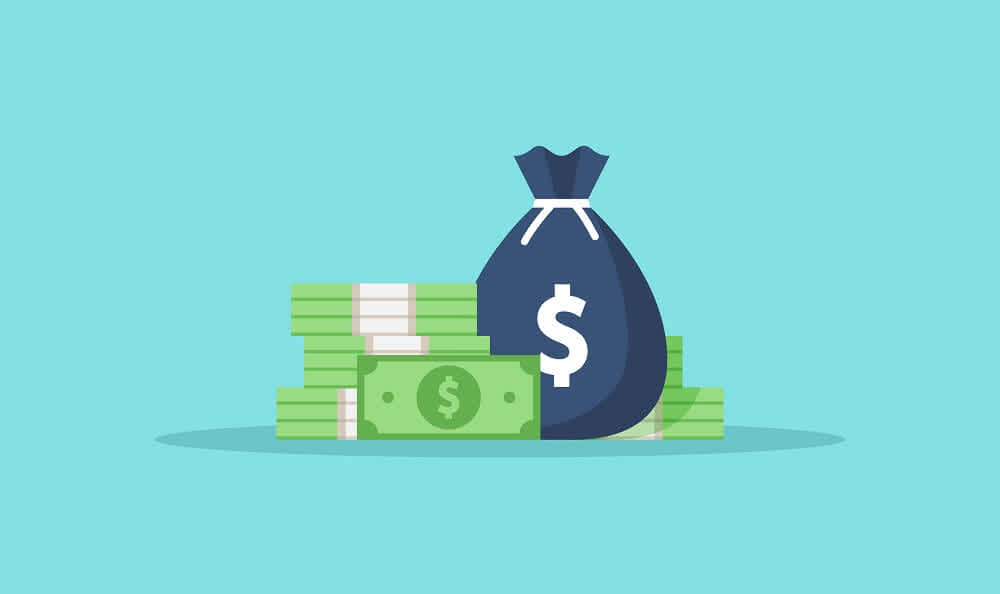
What is a merchant cash advance, and how can it help your business?
Are you a startup building your dream company but strapped for cash? Or a small business trying to drum up cash for operations? Small or mid-sized businesses can’t always resort to a bank loan, even if they have strong sales. But don’t fret; there are options available to you. A merchant cash advance is one of them.

Table of contents
- What is a merchant cash advance?
- How does a merchant cash advance work?
- How much does a merchant cash advance cost?
- How do lenders determine factor rates?
- Is a merchant cash advance the same as merchant financing?
- When can I use a merchant cash advance?
- Is a merchant cash advance a loan?
- What if I don't qualify for a merchant cash advance? What's next?
- Can I get a merchant cash advance?
- Who is a merchant cash advance provider?
- What happens if you don't pay a merchant cash advance?
- Merchant cash advances are flexible and affordable
- Benefits of merchant cash advance vs. business loan
- What are the disadvantages of merchant cash advances?
- How much could I borrow?
- Which industries typically use merchant cash advances?
- Is a merchant cash advance the same as a business cash advance?
- Is a merchant cash advance the same as business finance?
What is a merchant cash advance?
A merchant cash advance allows small businesses to access cash fast without going through the traditional business loan application and approval process. It is a form of unsecured funding which means the lender won't ask for tangible, physical assets as security. It is based on your credit and debit card sales deposited into your business account.
The advance amount can be equal to or more than your sales in a month, and you won't have to pay fixed instalments like with a bank loan. Instead, you will be required to pay overtime as a percentage of your sales. This means you repay as your customers pay you.
This significantly eases financial stress for small business owners because they don't have to worry about paying an amount they can’t afford when sales are slow.

How does a merchant cash advance work?
When you borrow money in the form of a merchant cash advance, it is in exchange for a percentage of the business income. You can use it in any way to grow your business like you would with any other kind of loan. But instead of paying back the lender in instalments, you will pay through customer card payments.
These payments are usually made daily as your business generates card transactions. The total amount to be repaid is calculated based on your business's financial status.
How much does a merchant cash advance cost?
Merchant cash advances use factor rates instead of interest rates or annual percentage rates (APR). A factor rate is a way of expressing the amount of interest charged on borrowing money. It is usually expressed as a decimal figure rather than a percentage.
Let’s take an example to understand the cost of a merchant cash advance. Let’s say a small business borrows $10,000 to buy inventory and agrees to pay back $12,500 at a factor rate of 1.5. This makes the cost of the advance $2,500.
The lender will charge the holdback rate or a percentage of your daily card transactions. It is usually in the range of 10-20%.
As the factor rate is determined based on the business’ sales performance, you will pay a lower factor rate if your business has good sales numbers.

How do lenders determine factor rates?
Lenders evaluate certain aspects of the business before they assign a factor rate:
Business sector
Different industries carry different levels of risk. For example, the retail or hospitality industry has seasonal highs and lows, but they make for good candidates for cash advances as they generate significant credit card sales.
Financials
Lenders want to assess your ability to pay back and may want to evaluate bank statements for the last three to six months.
Monthly sales
The repayment is in the form of a percentage of your monthly card takings. Having a good sales record is helpful.
Age of business
Some lenders offer merchant cash advances to businesses that have been around for six months. Others may need you to have been in business for a longer period.
Credit history
The lender will assess your business's creditworthiness. They may also ask for your personal credit score.
Is a merchant cash advance the same as merchant financing?
The term merchant financing is often used to describe merchant cash advances, but it can also be used to refer to types of funds available to small or mid-sized businesses on automatic credit card repayments. Merchant financing is business funding available to businesses that use a credit card processing system.

When can I use a merchant cash advance?
If you are a small business that needs to be more competitive, has an immediate need for cash to take on a new order or increase capacity, or just needs to be more functional, a cash advance is a good option.
Here are a few ways that businesses use it:
Buying office supplies or equipment
Cash flow
Expansion
Buying a new plant or facility
Stock purchase
Funding a big order
Paying bills
Is a merchant cash advance a loan?
A merchant cash advance is not a loan. Instead, it is a cash advance based on your business' future card sales and other receivables. Compared to a traditional bank loan, which is usually paid back in fixed monthly instalments, a merchant cash advance is paid back as a percentage of your credit or debit card sales and other receivables. This gives businesses some breathing space.
Merchant cash advances are also not subject to regulations in a way that loans are as they are essentially a sale of future revenue. They also don't require the tedious amount of paperwork that traditional loans do.

What if I don't qualify for a merchant cash advance? What's next?
When you apply for a merchant cash advance, lenders will analyse your previous monthly card turnover, and if you haven't been generating enough, securing a cash advance may be difficult.
If the advance is denied, the first step for you is to review the rejection. Find out the specific reasons behind the rejection. This is critical information because this will help with your next application and increase your chances of securing an advance in the future. This information may also be available on your rejection letter, but you can reach out and speak to the lender directly as well.
The second option available to you is to try another lender. Different providers have different requirements. If one rejects you that doesn't mean that all of them will. The requirements for how old your business is or the quantum of your credit card sales in a month may be different at different providers.
The third option is to bolster your credit card sales before applying again. The higher sales you have, the more likely you are to secure an advance. You can make it easier for your customers to use credit cards by not having a minimum amount requirement for purchases and accepting all credit cards.
Another option in case of rejection is to find a business loan specialist who can help you explore other alternative financing options. A business loan specialist can guide you and help you compare the features, pros, and cons of other alternatives. If you cannot get a specialist, you can look up online platforms to help you find other options.
While you wait for the merchant cash advance to be approved, you could try using a business credit card or secure a small line of credit from a bank.

Can I get a merchant cash advance?
If you own a business that uses credit card payments, have been in the game for more than six months, have a good debt repayment history, and meet the lender's minimum monthly income criteria, you are eligible for an advance.
Who is a merchant cash advance provider?
Merchant cash advance providers are usually alternative lenders like loan marketplaces. These companies offer products that have been developed outside of traditional financial institutions like banks. A lot of these funding products are designed for small and medium businesses that find it hard to secure loans and other financing from traditional channels.

What happens if you don't pay a merchant cash advance?
Merchant cash advances fill an important funding gap for small businesses, but they can be expensive compared to bank loans. If you hit a sudden roadblock in the business, your credit card payments fall, and you will not be able to afford to pay back the daily rate. It will be a tough spot to be in.
In such a scenario, there are two options available to you. The first is that you choose to close your business. In this case, the funder will not collect from you as there are no receivables anymore. However, you have to abide by the rules in the agreement or the lender can take you to court. You will be in breach of the agreement if you switch bank accounts, or start accepting cash or other forms of payment from your customers to show a smaller amount in your bank account. The lender can pursue you legally if you interfere with your payments to them in any form.
The second option available to you is to try and work out a deferment modification, which can allow you to change the terms of the advance. But if this doesn't work and the payments stop, you will be in breach of contract. These cases can be settled for a part of what you owe the lender. Defaulting is a very difficult situation to be in. It will be an arduous process, but you can get a consultant to help you with it.

Merchant cash advances are flexible and affordable
A merchant cash advance is both flexible and affordable. The repayment schedule is based on your credit card sales. Unlike fixed monthly payments, which you have to follow regardless of how much money you make in a month. A merchant cash advance allows for flexible payments.
Merchant cash advance is also an umbrella term for merchant financing programs that don't have a fixed repayment term. These can be paid back daily, weekly, or fortnightly. For businesses that accept credit and debit card payments every day, even if they are a startup or don't have good credit, merchant cash advances are a good option as they make a quick cash infusion easy and affordable.
Benefits of merchant cash advance vs. business loan
Merchant cash advances have these advantages over traditional loans:
There is no APR or fixed monthly payments like a bank loan.
They have a higher approval rate compared to bank loans, and the approval process is faster.
The repayment is a percentage of your future credit card sales, making it a more flexible payment option.
You can get an advance even if you have a bad credit score.
The repayment period for these advances is usually shorter than bank loans which may take years to pay back.
You don't need collateral or a business plan to secure an advance.
The repayment process is simple. It is automatically processed when transactions take place on your card machine.

What are the disadvantages of merchant cash advances?
Here are some of the disadvantages:
High cost
Merchant cash advances are expensive compared to bank loans. Lenders may add an administrative fee in addition to the factor rate. In a traditional loan, you may save money if you pay early, but not in a cash advance.
Personal assets
Merchant cash advance lenders usually require a personal guarantee in case your business is unable to pay back. This will mean you will have to pay back using your personal assets if you default.
Cycling debt
Small businesses often take on merchant cash advances as a way to pay off another advance. This may compound your debt problems and make you personally liable to pay them back.

What are the disadvantages of merchant cash advance compared to a bank loan?
Its main cons compared to a bank loan are:
You will get quick cash, but it may not be very cost-effective. It ends up being expensive compared to a traditional bank loan.
Everyday payments will hurt cash flow, unlike monthly payments.
It won't raise your creditworthiness.
It is available for businesses that accept credit card payments.
How much could I borrow?
You can borrow anything between $5,000 and $500,000, depending upon the size of your business, sales, and which merchant cash advance provider you pick.

Which industries typically use merchant cash advances?
Here are some of the types of businesses that use and benefit from merchant cash advances:
Food and beverage
Cafes, bars, and restaurants can have inconsistent cash flow depending on the month or season, making it hard for them to repay bank loans. Please note that cash advances are a more flexible option for these businesses. They can be used for inventory, expansion, renovations, or new equipment.
Retail
Retail is a seasonal business. It can be rough for small stores to manage their cash flow in leaner months or have additional inventory for the holiday or back-to-school season. This makes cash advances a good option for them. They can use the quick cash to build capacity for any heavy sales season, buy more inventory or hire more people.
Services/Beauty and Wellness
Businesses like spas, salons, or auto repair shops are good candidates for cash advances as they generate significant credit and debit card payments. For these businesses, collateral-free cash advances can be an easy way to cover operational expenses, buy new machines or equipment, invest in marketing, or hire seasonal staff.
Is a merchant cash advance the same as a business cash advance?
The terms are sometimes used interchangeably, but business cash advances are used to define various lending instruments that are based on a business's future revenue. A merchant cash advance is a form of business cash advance.
Is a merchant cash advance the same as business finance?
Business finance is different from a merchant cash advance. Business finance is a broad term used to define a range of financing solutions for businesses. These can be broadly divided into two categories: debt finance and equity finance.
Debt finance
Debt finance covers the category of financing solutions where a financial institution lends money that is repaid with interest and fees in a period of time. This can be in the form of business credit cards or invoice financing and will need some kind of collateral.
Equity finance
As the name suggests, this type of business finance includes a third-party investor who provides funding in exchange for a share or part ownership in your business.